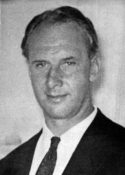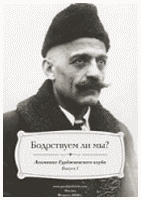RODNEY COLLIN

Rodney Collin, originally Rodney Collin Smith, was born in 1909 in Brighton on the south coast of England. He studied at the London School of Economics, after which he became a writer as well as a traveler. In his first book, Palms and Patios, published in 1931, when he was 22 years old, he recounted about his walking tour through Spain. During the early 1930s he wrote for many publications in England, including the Evening Standard, the Spectator and the New Statesman, and was one of the compilers of the Daily Express Encylopaedia.
His interest in the Fourth Way began when in 1931 he read P.D. Ouspensky’s A New Model of the Universe. In 1935 he and his wife Janet attended talks by Maurice Nicoll, a pupil of Gurdjieff and Ouspensky. He was introduced to Ouspensky’s lectures through Robert de Ropp, one of the members of the Peace Pledge Union.
Rodney Collin and his wife joined Ouspensky’s group, becoming its active members, at the time when the group was expanding and going through increased activity. He regularly attended Ouspensky’s lectures and meetings, and worked at Lyne Place, a house in Surrey devoted to Ouspensky’s activities. In 1938 Rodney Collin visited Damascus and Aleppo, where he established contact with the Mevlevi dervish groups. He and his wife bought a house in Virginia Waters to be closer to Lyne; at that time when their daughter Chloe was born. Collin worked in the gardens and studied esotericism, art and civilizations in the British Library.
During World War II, as the situation in London was exceedingly difficult, Ouspensky moved to America to continue the activities of his groups. Rodney Collin and his wife assisted in the purchase of Franklin Farms in Mendham.
Collin worked as a censor in the British Security Commission, as a result of which he was able to transfer to New York through Bermuda. Coincidentally he travelled to America on the same ship as Ouspensky did, which enabled him to establish closer contact with his teacher.
Once after confronting Ouspensky about the latter’s strange habits, a result of the difficulties of his life in the United States, Collin realized that Ouspensky was carrying out the Work in this singular fashion and that he could learn much from him. After this, Rodney Collin took a more active role in Ouspensky’s work. He spent much time with Ouspensky and later led meetings for him. Rodney Collin followed Ouspensky when the latter returned to England, where he was able to help Ouspensky’s work during the last months of the latter’s life. At that time Ouspensky led a series of meetings, in which he encouraged his pupils to follow their own individual paths, declaring that he abandoned the system. Many of his pupils were intensely confused by this, but Rodney found Ouspensky’s dramatic move to be helpful for his personal development. He wrote an inspiring account of this last period of his association with Ouspensky, entitled Last Remembrances of a Magician, which was circulated immediately after Ouspensky’s death, but has never been published. In August 1947 he wrote the outline to The Theory of Celestial Influence, where he presented a study of man and the universe following the cosmological ideas of laws of the system.
Immediately after Ouspensky’s death Rodney Collin locked himself Ouspensky’s rooms for a few days without food. After he came out, many people noticed a distinct change in him. The next few months saw the appearance of his books Last Remembrances and The Theory of Eternal Life.
In 1948 Rodney Collin and his wife Janet moved to Mexico, together with a few followers, where they lived for two years in Tlalpam. His book The Theory of Eternal Life was published anonymously in 1949, at which time he wrote Hellas, a play depicting different stages of Greek civilization. At that time he continued his work on his book Theory of Celestial Influence, published in 1953 in Spanish and in 1954 in English.
Collin bought land outside of Mexico City for group work, and his group held regular meetings. By 1953 Collin entered into a new period of his work, in which the idea of harmony was the most essential element. He tried to establish connections with the other groups continuing the work of Gurdjieff and Ouspensky. He had especially good relations with Maurice Nicoll, whose books had organized the translation into Spanish, which were published in Mexico by Ediciones Sol. Collin began to acquire new Mexican pupils, including a lady named Mema Dickens, who began channeling messages from Ouspensky. Collin wrote and published a few small pamphlets, including The Herald of Harmony, The Christian Mystery and The Pyramid of Fire. In 1955 he converted to Roman Catholicism, after which he traveled throughout South America, Europe and Asia, seeking for traces of the Fourth Way. In early 1956 he suffered a heart attack after a pilgrimage to a cathedral. Later that year in Peru, when instructing his group, he suffered another heart attack, from which he died.
Books by Rodney Collin:






